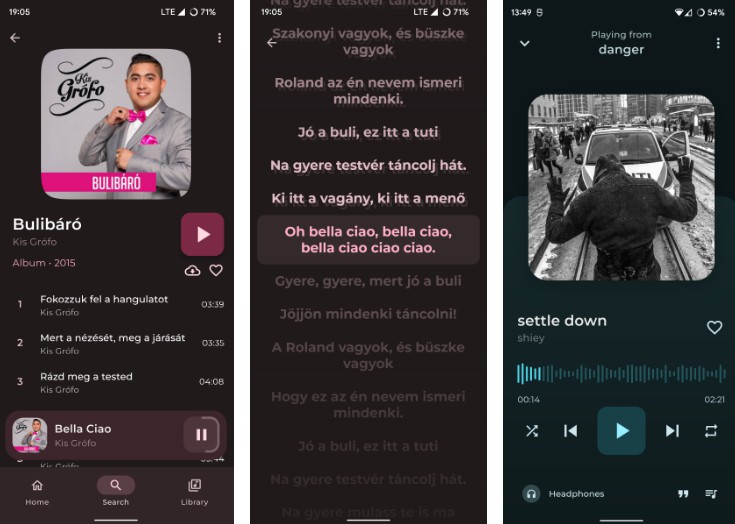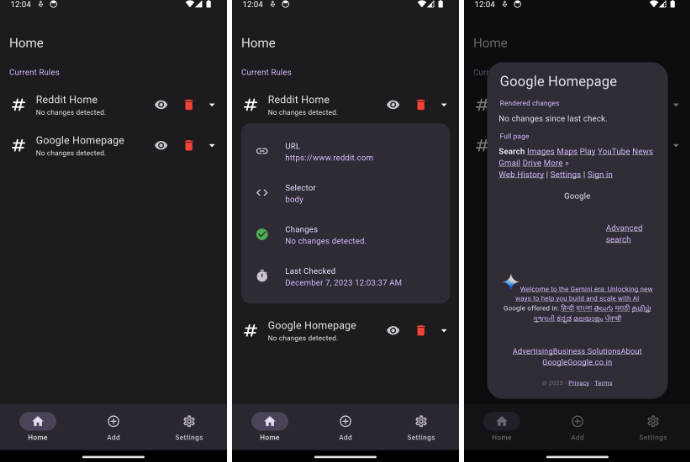Go Router Plus
Go Router is an awesome easy-to-use and production ready package for creating routes, handling navigation, deep and dynamic links but in large apps have a lot of screens, states and auth logics, it’s hard to manage routes, redirect and refresh router logics.
This package try to solve problems above by adding screen pattern, common redirect logics and chain redirect/refresh listenable.
Installation
Run the command bellow to install this package:
flutter pub add go_router_plus
After install pub package, now you can import it:
import 'package:go_router_plus/go_router_plus.dart';
Creating screens
Screen represent for route of your application, the purpose of
it is separate GoRoute factory logics out of GoRouter factory for
easy-to-read and maintaining.
/// lib/screens/my_first_screen.dart
import 'package:go_router_plus/go_router_plus.dart';
import 'package:go_router/go_router.dart'
class MyFirstScreen extends Screen {
@override
Widget builder(BuildContext context, GoRouterState state) {
return Text('Hello world');
}
@override
String get routeName => 'my_first_screen';
@override
String get routePath => '/my-first-screen';
}
All of your screens must be extends an abstraction class Screen providing by this package.
The following methods, getters need to implements:
- Method
builder(BuildContext context, GoRouterState state)must be redeclare return type toWidgetorPage<void>, in common case you should useWidgetbut if you want to control the transition of screen you should usePage<void>. - Getter
routeNamedeclare route name of the screen must be unique. - Getter
routePathdeclare route path of the screen.
Mark screen as an initial screen
To setup initial path (the first screen user will see) in traditional way, we will set initialPath
argument of GoRouter factory but when using this package you need to create the screen implements InitialScreen interface instead.
class LoginScreen extends Screen implements InitialScreen {
///......
}
Mark screen as an error screen
As you know, GoRouter factory offer we an errorBuilder
argument to handling error (e.g route not found) but when using this package you need to create the screen implements ErrorScreen interface instead.
class MyErrorScreen extends Screen implements ErrorScreen {
@override
Widget builder(BuildContext context, GoRouterState state) {
return Text(state.error);
}
///......
}
Creating router with screens
Now you got the screen pattern concept, let creating Go Router:
final router = createGoRouter(
screens: [
LoginScreen(),
MyFirstScreen(),
MyErrorScreen(),
],
);
createGoRouterfactory function providing by this package.
Redirector
Redirector will handles redirection logics of all routes.
You can setup one or many redirectors via redirectors argument of createGoRouter factory function:
final router = createGoRouter(
screens: [
LoginScreen(),
MyFirstScreen(),
MyErrorScreen(),
],
redirectors: [
AuthRedirector(
state: LoggedInStateProvider(),
guestRedirectPath: '/login',
userRedirectPath: '/home-page',
),
ScreenRedirector(),
],
);
Authentication redirection
Authentication redirection is the most of common logic of the whole app
so it provided out of the box by this package via AuthRedirector.
To use this builtin feature, you need to create a class implements the LoggedInState interface:
class LoggedInStateProvider implements LoggedInState {
bool _loggedIn = false;
@override
bool get loggedIn => _loggedIn;
set loggedIn(bool value) {
_loggedIn = value;
}
}
It’s a simple interface need you implements loggedIn getter,
this getter return true when user has been logged in otherwise
user’s guest (not logged in).
And you need to marks guest and user screens of you app by using UserScreen and GuestScreen interfaces:
class LoginScreen extends Screen implements GuestScreen {
@override
String get routePath => '/login';
///...
}
class HomeScreen extends Screen implements UserScreen {
@override
String get routePath => '/home';
///...
}
In example above, we have two screen, one for guest (login screen) and one for
user (home screen). When user is NOT logged in he/she will be redirect
to login screen otherwise he/she will redirect to home screen, to handling
this scenario, we need to add AuthRedirector with the setting bellow:
final router = createGoRouter(
screens: [
LoginScreen(),
HomeScreen(),
],
redirectors: [
AuthRedirector(
state: LoggedInStateProvider(),
guestRedirectPath: '/login',
userRedirectPath: '/home',
),
],
);
Now everytime user access to screens implements UserScreen interface but
he/she’s NOT logged in will be redirect to login screen and if they access to
screens implements GuestScreen interface but logged in will be redirect to home screen.
Screen redirection
It’s a builtin feature to support screens have a custom redirect logic (e.g: access control by app states, user roles).
Screens want to build custom redirect logic should be implements RedirectAware:
class VipScreen extends Screen implements UserScreen, RedirectAware {
@override
String? redirect(GoRouterState state) {
/// final currentUser = ....
return !currentUser.isVip ? '/home' : null;
}
}
Like origin redirection,
redirect method above return null in case current user’s VIP type so user can stay
in this screen, on the other hand normal user will be redirect to home screen.
And to activate this feature pass ScreenRedirector instance to redirectors argument of factory function:
final router = createGoRouter(
screens: [
LoginScreen(),
HomeScreen(),
VipScreen(),
],
redirectors: [
ScreenRedirector(),
AuthRedirector(
state: LoggedInStateProvider(),
guestRedirectPath: '/login',
userRedirectPath: '/home',
),
],
);
Creating custom redirector
In some cases, you may want to control redirection logics for common screens like AuthRedirector or ScreenRedirector above
(e.g: add an interface to marks some screens only admin user can access).
abstract class AdminScreen {}
class ManageUserScreen extends Screen implements AdminScreen {
///...
}
class AdminRedirector implements RestrictRedirector {
@override
bool shouldRedirect(Screen screen) {
return screen is AdminScreen;
}
@override
String? redirect(GoRouterState state) {
/// final currentUser = ....
return !currentUser.isAdmin ? '/home' : null;
}
}
In the example above, we have add the AdminScreen interface use to marks screens for admin user only,
if user’s not permit will be redirect to home screen.
AdminRedirector implements RestrictRedirector interface only execute redirect method when
shouldRedirect method return true otherwise it’ll skip. In this case, shouldRedirect method
only return true when current screen implements AdminScreen.
The final step is add custom redirector to redirectors argument of factory function
final router = createGoRouter(
screens: [
ManageUserScreen(),
],
redirectors: [
AdminRedirector(),
///...
],
);
Refresh notifiers
Refresh listenable is a builtin feature of GoRouter to re-invoke redirection logics but it only accept one listenable and we need to implements all of re-invoke logics in one place.
With this package you can add more than one listenable to re-invoke redirection logics so you can separate logics to easy control, readable and independent to each others.
Pass one or more listenable instance to refreshNotifiers argument of factory function:
class AuthService with ChangeNotifier implements LoggedInState {
bool _loggedIn = true;
@override
bool loggedIn() => _loggedIn;
void logout() {
_loggedIn = false;
notifyListeners();
}
}
class PromotionService with ChangeNotifer {
void activate() {
///....
notifyListeners();
}
}
final authService = AuthService();
final router = createGoRouter(
screens: [
ManageUserScreen(),
],
redirectors: [
AuthRedirector(
state: authService,
guestRedirectPath: '/login',
userRedirectPath: '/home',
),
///...
],
refreshNotifiers: [
authService,
PromotionService(),
/// GoRouterRefreshStream(...),
]
);
In the example above, AuthService class’s a refresh notifier and implements LoggedInState interface
to providing state of current user’s logged-in or guest. When user logout AuthRedirector will invoke
and redirect he/she to login screen. In the other hand, promotion service will invoke redirection logic
when activate promotion (e.g: move user to promotion screen).


